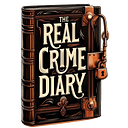Quick Tips: Essential Forensic Science Terms to Know
If you’re diving into the world of forensic science, whether you’re a true crime aficionado or just curious about how crime scenes get solved, there are some key terms that will definitely come in handy. Understanding these terms can give you insights into how forensic experts piece together evidence to crack cases wide open. Let’s break down some must-know lingo!
Autopsy
First up is the autopsy. This is an examination of a body after death, usually performed by a medical examiner or pathologist. It helps determine the cause of death and can reveal important information about any foul play. So if you’ve ever been watching a crime documentary and heard this term, now you know what’s going down in that scene!
Chain of Custody
Ever heard of chain of custody? This term refers to the process that ensures evidence collected from a crime scene is preserved and documented from the moment it’s picked up until it’s presented in court. If this chain is broken, it can lead to questions about the integrity of the evidence — not something detectives want to mess around with!
Forensic Anthropology
An interesting branch worth noting is forensic anthropology. This field involves studying human remains to help law enforcement identify victims or understand circumstances around their deaths. These anthropologists can determine age, sex, ancestry, and even stature just from bones! Pretty mind-blowing, right?
DNA Profiling
You’ve probably heard about DNA profiling — it’s one of the most powerful tools in forensic science today. By analyzing specific sequences in DNA, investigators can match biological samples found at a crime scene to suspects or victims. It’s like using a super high-tech fingerprinting system — if you leave your DNA behind, it could totally come back to haunt you!
Toxicology Report
A toxicology report comes into play when there’s suspicion that drugs or poisons are involved in a person’s death or health issues. This report tests bodily fluids for any toxic substances and gives forensic experts vital clues about what might’ve gone down before someone passed away.
Ballistics
If guns were involved in any way shape or form related to your case study — now listen up! The term ballistics focuses on the study of projectiles (like bullets) and firearms. Understanding how bullets travel can provide essential insight into where shots were fired from and even link weapons back to suspects.
So there you have it! A quick dive into some essential forensic terms that’ll amp up your knowledge whether you’re following along with investigations on The Real Crime Diary or just want to impress your friends with some cool trivia next time you’re binge-watching true crime shows! Keep exploring — there’s always more intriguing stuff waiting for you out there!
